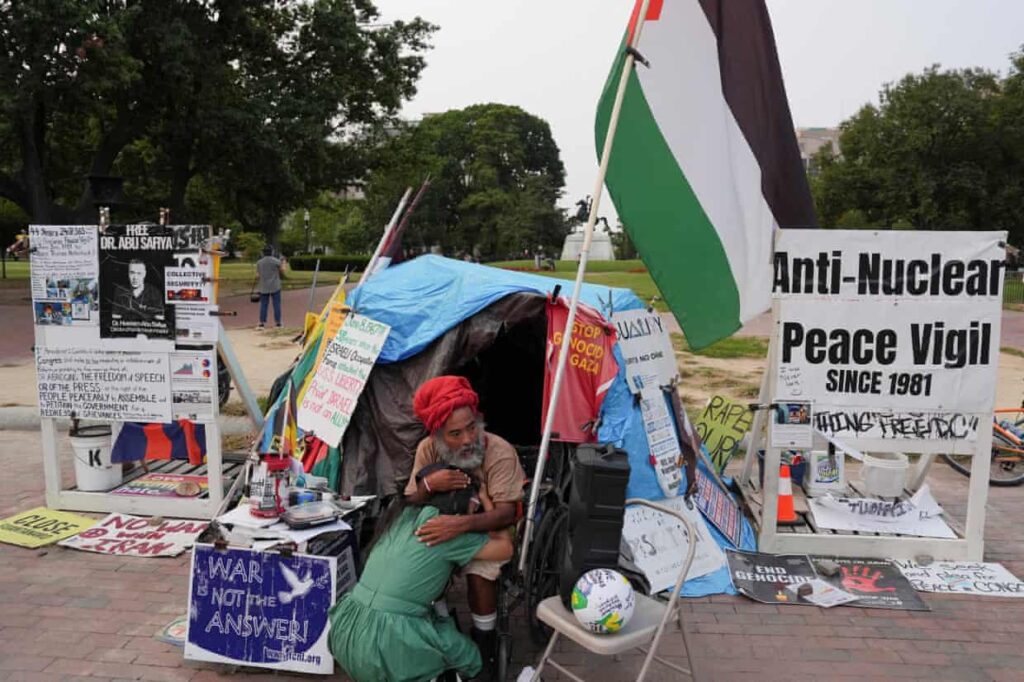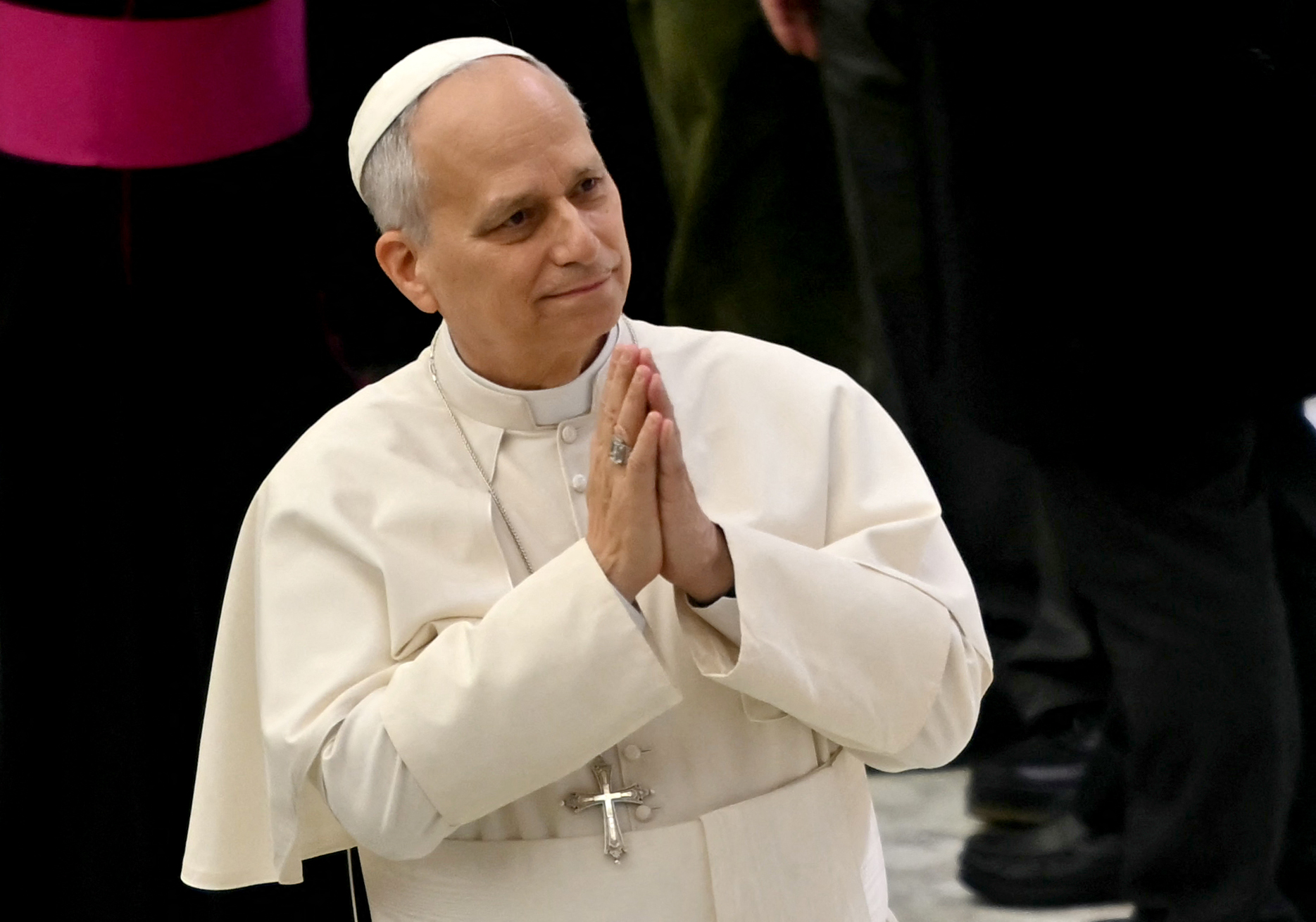
On March 19, 2023, law enforcement officials dismantled a peace vigil that had been continuously established in front of the White House for over four decades. This action was executed on the orders of former President Donald Trump, who requested the removal of the vigil just two days prior.
Initiated in 1981 by William Thomas, the vigil aimed to promote nuclear disarmament and an end to global conflicts. It is recognized as the longest-running anti-war protest in the United States. Over the years, numerous volunteers have maintained the site located in Lafayette Square, ensuring its presence in front of the White House gates.
The decision to dismantle the vigil followed a question posed by Brian Glenn, a correspondent for the conservative network Real America’s Voice. During an interview with Trump, Glenn described the vigil as having shifted from its original anti-nuclear purpose to sometimes expressing anti-American sentiments. Trump, seemingly unaware of the vigil’s significance, directed his staff to “Take it down, right now.”
On the morning of March 19, officers arrived at approximately 06:30 and informed volunteers, including 24-year-old Will Roosien, that they had 30 minutes to remove a tarp providing shelter from the rain. Roosien refused to comply and was subsequently detained while officers proceeded to dismantle the tent. “This is a disgrace, and you should all feel ashamed,” he asserted, as captured in footage shared with the Washington Post. Roosien emphasized the vigil’s commitment to advocating for human rights and peace for 44 years.
Philipos Melaku-Bello, the vigil’s longest-serving steward at 63, reported to the Washington Post that volunteers had partially reconstructed the vigil shortly after its dismantling. He expressed his belief that the dispute regarding the vigil would likely end up in court. Melaku-Bello highlighted the importance of distinguishing between an encampment and a vigil, stating, “As you can see, I don’t have a bed. I have signs and it is covered by the [constitutional] right to freedom of speech and freedom of expression.”
The dismantling of the vigil occurs in the context of the Trump administration’s broader strategy regarding policing in Washington D.C.. In March 2023, Trump issued an executive order aimed at the “beautification” of the capital, which included directives for federal officials to remove encampments.
The recent inquiry from Glenn came shortly after Jeff Van Drew, a Republican congressman from New Jersey, criticized the vigil in a letter to the Department of the Interior. He argued that the Constitution does not guarantee the right to establish permanent structures on public land, asserting that the vigil created public safety hazards and detracted from the aesthetic of one of the nation’s iconic parks. “This isn’t ‘free speech.’ This is a failure of enforcement,” Van Drew asserted in his correspondence.
As the situation unfolds, the impact of the vigil’s dismantling raises broader questions about free speech, public demonstrations, and the rights of individuals to express dissent in the heart of American democracy.





